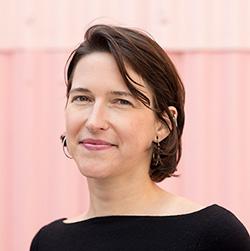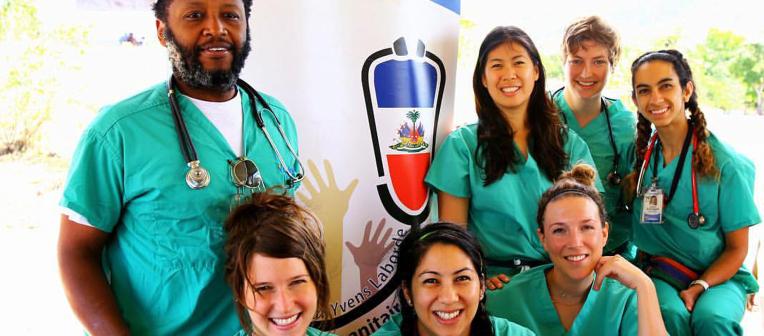
Deborah Levy hails from Chicago, IL, and completed her undergraduate degree at the University of Michigan-Ann Arbor in Ann Arbor, Michigan. There, she earned a Bachelor of Arts in Philosophy in 2009. In 2012, she relocated to New Orleans, Louisiana, to pursue a Master's in Public Health with a focus on Tropical Medicine at Tulane University School of Public Health and Tropical Medicine. Deborah successfully obtained her Master of Science in Public Health in 2014.
We sat down with her to reflect on her medical journey.
What was your main motivation for becoming a doctor?
My main motivation for becoming a doctor was rooted in a desire to help people who are marginalized. I had been interested in science for as long as I can remember, and finding meaningful work at the intersection of science and community service was important to me. I completed my pre-medicine requirements as an undergraduate, however at the time of graduating from my undergrad degree, I did not feel like medicine was a good fit for me, mostly due to how cut-throat medical culture can be in the US. After obtaining exposure to health inequities on a population level through my Master's degree, I came to understand that I indeed wanted to work directly with people rather than in a lab or collecting data in the field. So, five years after graduating from undergrad, I applied to med school.
Why did you decide to pursue your medical career at UQ-Ochsner?
I wanted to stay in New Orleans or Louisiana if possible, however I was very intrigued by the UQ-Ochsner program because of the opportunity to live and study in Brisbane and New Orleans. I had lived abroad in the Middle East and in South Asia before, so the idea of moving to Australia was very exciting. Since I was already five years out of undergrad, a less traditional medical school seemed like a good fit.
What were some of the highlights about the UQ-Ochsner MD program?
First of all, learning medicine in a different country with a different healthcare system and different approach to public health, especially public mental health, was invaluable. Another highlight for me was studying within the context of Australian medical culture, which, in my opinion, has a more sustainable approach to work-life balance. I also appreciated meeting other medical students from all over the world, and I don't think I would've had that experience at any US medical school. Finally, and this may go without saying, having the ability to go to some of the most beautiful beaches on the weekend after exams was an incredible way to recharge.

L-R: Marching in the New Orleans Pride Parade with UQ-Ochsner Medical Student Association.
My TBL group from Year 1.
UQ-Ochsner group trip to Fraser Island during Year 4.
Where did you match and why did you choose your speciality?
I decided to pursue psychiatry because of my fascination with the complexities of the human experience and because it is a relatively neglected area of focus in public health outcomes. There are social and structural inequities baked into nearly every facet and specialty of medicine, however the health inequities in people with psychiatric illnesses are even more stark. I knew I wanted to stay in New Orleans for residency and ultimately matched at Tulane University School of Medicine where I completed a four-year Adult Psychiatry Residency training program. Due to my interest in social justice in medicine and public health, I decided to complete a one-year fellowship in Public and Community Psychiatry at Columbia University in New York where I focused on the care of people with serious and complex behavioural health needs in publicly funded systems.
Where do you practice medicine now and in what speciality?
I am licensed in both Louisiana and New York and currently practice public psychiatry in New Orleans, Louisiana and New York, New York. After working on site for a housing non-profit in New York City for about a year and a half, I decided to return to New Orleans, Louisiana and continue to provide telepsychiatry services in homeless shelters and supportive housing programs in NYC remotely. I also currently work on-site at Orleans Parish Prison, the county jail in New Orleans, where I provide recovery-oriented psychiatric services to people who are incarcerated with serious mental illness, such as schizophrenia.
How do you think the UQ-Ochsner program shaped the doctor you are today?
The UQ-Ochsner program expanded my perspective of how medical care, and especially psychiatric care, can be delivered. Having exposure to learning about Australia's work in early psychosis interventions or even just observing how a behavioral health emergency room was set up in an Australian hospital were early moments in helping me understand that there can be better ways to address the delivery of psychiatric services in the US.

